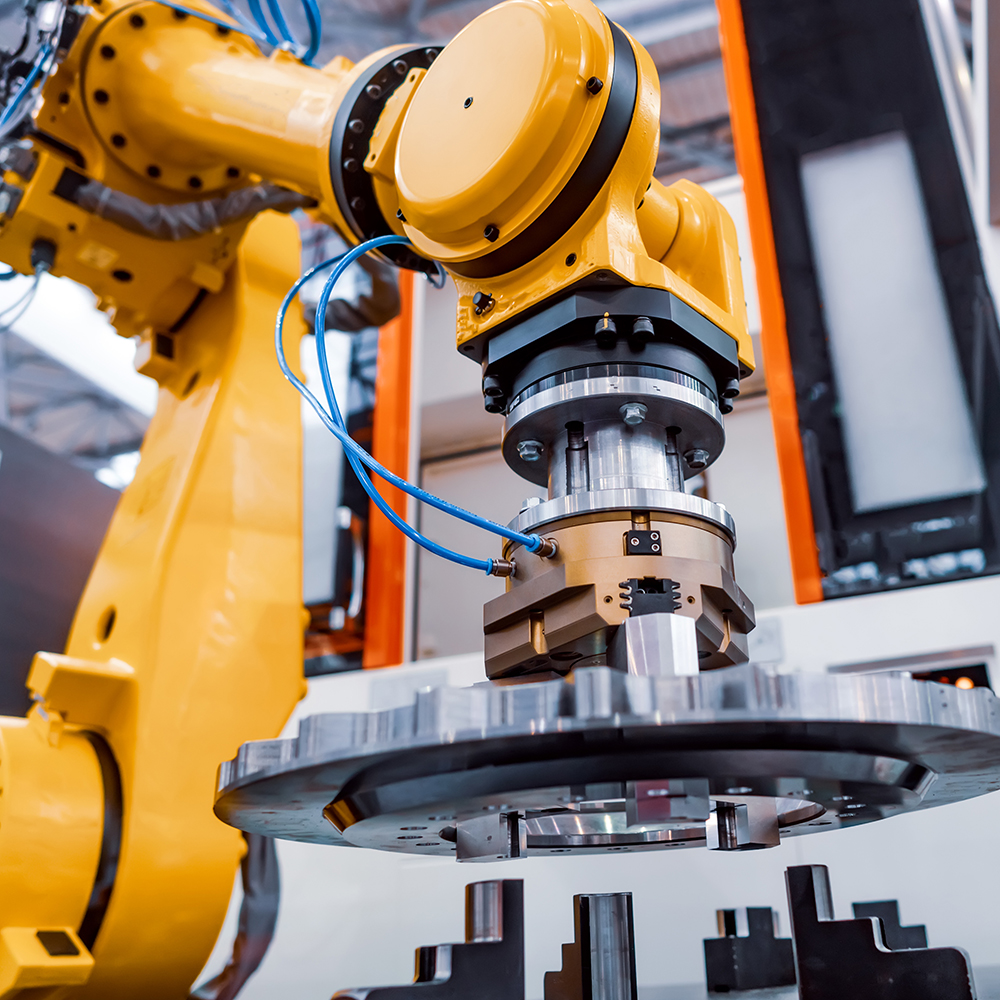Automation & Robotics Technician
The Automation and Robotics Technician program provides an introduction of industrial automation including the use of CAD SolidWorks software, PLC programming, Industrial Motors and Controls, and the operation and programming of robotics systems. The program examines applications and examples of automated manufacturing systems including both classroom and hands-on lab exercises.
Robotics Technicians build, install, test, or maintain robotic equipment or related automated production systems. They also make repairs to robots or peripheral equipment, such as replacement of defective circuit boards, sensors, encoders, or servomotors.

Career Opportunities
- Automation and Robotics Operator
- Automation and Robotics Technician
- Automated Process Specialist
- Robotics Technician
- Maintenance Technician
- Machine Operator
Get Started Now!
Work with a counselor to get your personalized plan!
| First Semester | Details | ||||||||||
|---|---|---|---|---|---|---|---|---|---|---|---|
| CAD 101 | Introduction to Drafting and Blueprint Reading for CAD | Details | 3 | ||||||||
|
|||||||||||
| CAD 114 | Introduction to Parametric Modeling | Details | 3 | ||||||||
|
|||||||||||
| ELE 135 | Programmable Control | Details | 3 | ||||||||
|
|||||||||||
| FYE 101 | Blazing Your Trail | Details | 1 | ||||||||
|
|||||||||||
| MFG 103 | Introduction to Manufacturing Maintenance | Details | 2 | ||||||||
|
|||||||||||
| MFG 145 | Introduction to Robotics Operations | Details | 3 | ||||||||
|
|||||||||||
| Second Semester | Details | ||||||||||
|---|---|---|---|---|---|---|---|---|---|---|---|
| IMT 120 | Industrial Motors & Controls | Details | 3 | ||||||||
|
|||||||||||
| MAT 100 | Technical Mathematics | Details | 3 | ||||||||
|
|||||||||||
| MFG 104 | Quality/Continuous Improvement | Details | 3 | ||||||||
|
|||||||||||
| MFG 113 | Introduction to Manufacturing & Industrial Safety | Details | 3 | ||||||||
|
|||||||||||
| MFG 150 | Handling Tool Operations/Programming | Details | 3 | ||||||||
|
|||||||||||
Gainful Employment: For more information about graduation rates, cost, the median debt of students who complete the program, and other information, please view our Gainful Employment information for the particular certificate of study.

